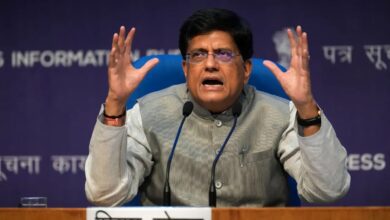Cerelac’s sugar content is below the FSSAI limit: Nestle
On Monday, Nestle India denied the accusations against them for marketing infant food products with greater sugar content in developing nations like India, such as Cerelac. According to Suresh Narayanan, chairman and managing director, the accusation is regrettable, false, and based on racial stereotypes.

According to Narayanan, Cerelac’s added sugar level is far less than the maximum allowed by the Food Safety and Standards Authority of India (FSSAI). “This product contains nothing that could pose a risk or cause harm to a child,” the representative said.
The maximum amount of added sugar that is allowed per 100 grams of feed is 13.6 grams, according to the FSSAI. Narayanan said, “Nestle is 7.1 grams, which is well below the standards and the maximum limits set up.” The firm formulates its baby food for infants under the age of eighteen months on a worldwide scale.
According to Narayanan, the business is considering launching Cerelac without added sugar in India, although it would be difficult to provide a precise launch date. “Its levels have dropped by nearly 30% in the last five years, and we are looking at additional ways to reduce this as we go along; it is also an ongoing process,” he said.
While acknowledging that the FSSAI had contacted the firm to inquire about the amount of sugar in Cerelac, he went on to say that Cerelac sales have not been significantly impacted by the sugar problem.
During a media roundtable, Narayanan said that baby food sugar content is universally decided by its capacity to suit the nutritional needs of a certain age group. Regarding Nestle, he said that natural sugar makes up the bulk of the sugar in the product.
“There isn’t a local methodology available for conducting a research on nutritional sufficiency. Around the world, the recipes are created at a time when growing youngsters need items high in energy. Thus, a kid in Europe is not distinguished from a youngster in India or anywhere else in the globe, according to Narayanan, who also said that Cerelac complies with all Codex requirements.
The Food and Agriculture Organization of the United Nations established the Codex, which is a set of globally recognized standards, codes of practice, guidelines, and other recommendations pertaining to food, food production, food labeling, and food safety. India is a participant in the Codex committee as well.
Furthermore, I would want to state unequivocally that items with added sugar and those without are available in both Europe and Asia. Therefore, it is regrettable and false to say that it is racially stereotypical, he said.
Narayanan gave an explanation of the reasoning for the increased sugar in Nestle’s infant food in India, stating that both the ingredients and the nutritional profile can change.
We included this because we felt it was necessary in India, but at far lower levels than the local regulator had even stated. I believe it is important to have faith that the local regulator is aware of what we are doing. Thus, there hasn’t been a significant departure made,” he said.







